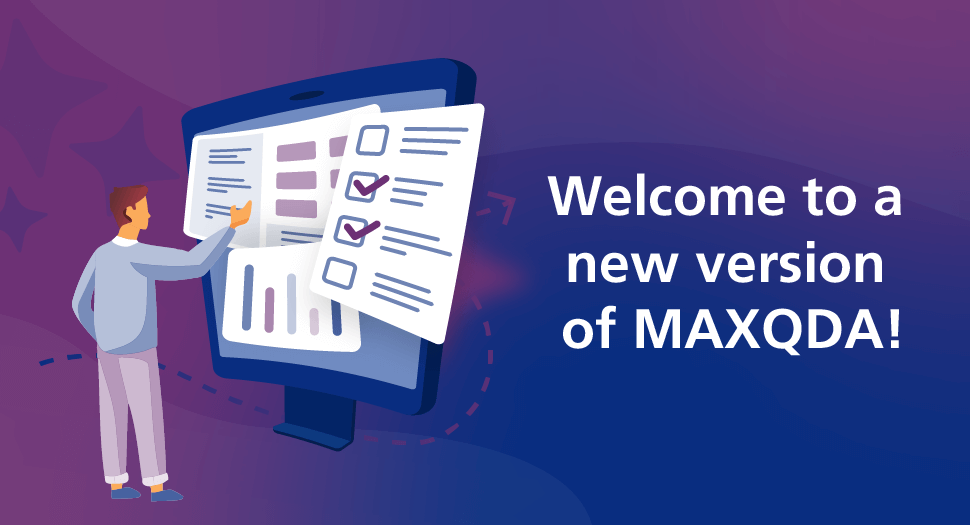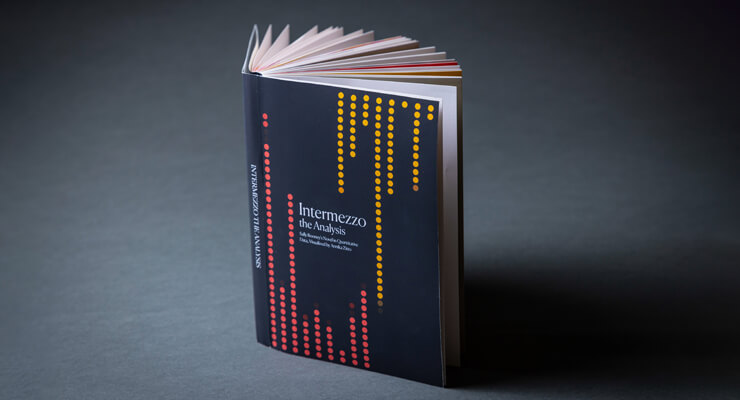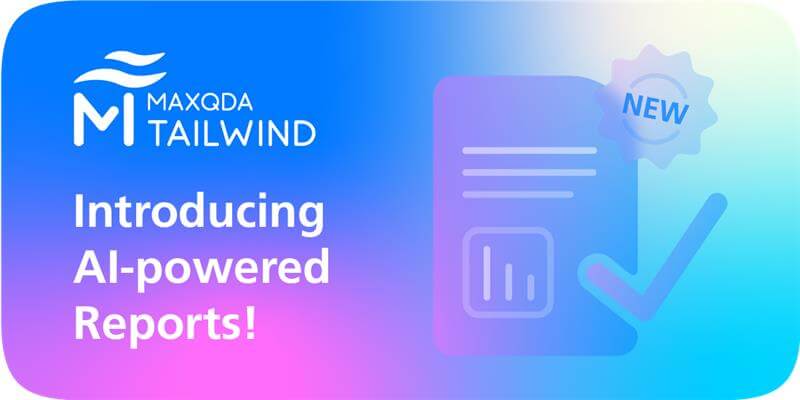Guest post by Weverton Ataide Pinheiro.
This is my first blog post about my research journey with MAXQDA. My research project was born out of questions regarding why mathematics departments across the world are still predominantly composed of men.
Specifically, my project comparing women’s and men’s experiences. I have an enthusiastic interest in the experiences of successful female-identifying mathematics Ph.D. students who can navigate spaces that aren’t the most welcoming and representative for them – spaces that are still male-dominated, shaped by men’s experiences, and men’s ways of reasoning.
Data Collection
To collect the necessary data for this project, I contacted Ph.D. students who self-identified as women and whom I considered high mathematical achievers (this judgment was based on advanced math coursework grades) in their Ph.D. programs to participate in interviews. I inquired about their experiences within mathematical spaces (the math classroom, office, study group, faculty office, etc.) and related gendered experiences in the mathematics department.

The room used for data collection
So far, my interviews have taken place in September 2019 in a large research institution in the Midwest of the United States of America. I have interviewed 6 female-identifying mathematics Ph.D. students in different stages of their program (two, in the beginning, two in the middle, and two in the end). Three of the participants identify as caucasian Americans, one identifies as caucasian-Italian, one identifies as Asian-American, and one as Hispanic-Latina.
I interviewed each participant twice, thus collecting two hours’ worth of data per participant. At this primary stage, interviews have only been audio-recorded.
Interview Goals Day 1
On the first day of interviews, I was interested in asking the participants questions about their experiences as a Ph.D. student in mathematics. These questions were all designed to help them answer in a way that meant they would be able to reflect on the history of their lives.
In order words, my goal was to have them tell more of their story with each question I asked. Indirectly, each question converted to specific categories of interest. On the first day of interviews, my specific categories of interest were, among many others:
- student’s perception of work opportunities,
- student’s ability to do the math,
- student’s interest in mathematics,
- student’s curiosity about math,
- teachers’ influence on students’ decision to do the math,
- student’s understanding of mathematics,
- student’s connections with mathematicians,
- student’s identity as a mathematician,
- student’s beliefs of what a mathematician is,
- student’s understanding of stereotypes in mathematics.
The converted categories of interest were not directly asked throughout the interviews, instead, the questions were designed in ways that students would approach the topics on the converted categories of interest even though they were not asked about it. This process of asking questions leading to a specific category of interest without asking about them directly helps ensure the reliability of this qualitative research project.
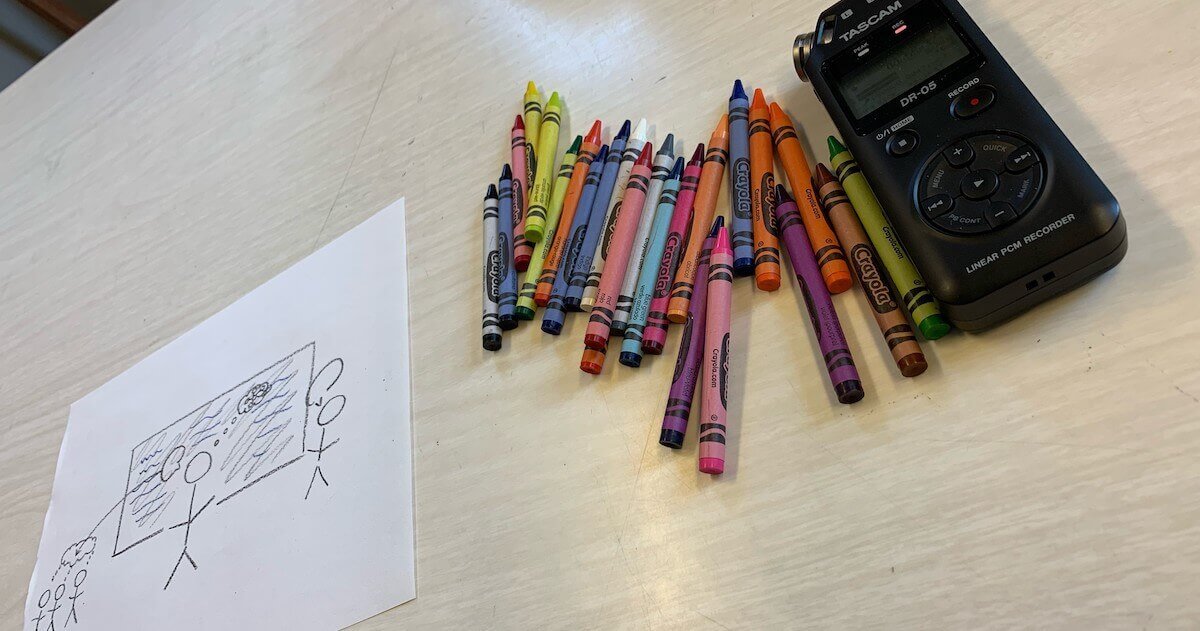
Materials used during the interviews
The Lead-Off Question (LOQ) for the first day of interviews was: “Tell me about what motivated you to pursue a Ph.D. degree in mathematics?” According to the answer given for the LOQ, different follow-up questions were asked to better understand these students’ personal experiences.
Interview Goals Day 2
On the second day, though interviewing the same students, I conducted life-story interviews where the participants had an opportunity to reconstruct their lives as a mathematics student, from elementary school to their current Ph.D. program. We then also discussed issues of gender in the mathematics department; specifically, the convert categories of interest on the second day were:
- student’s perception of gender stereotypes,
- student’s belief about stereotypes in mathematics department,
- student’s knowledge on gender issue related to US society,
- student’s understanding of patriarchy in the US,
- student’s belief of who does better in mathematics,
- student’s construction of gender identity.
These interviews were divided into two parts. The first part had three LOQs that helped students to re-build their stories of experiences with mathematics from elementary school to college (undergraduate level).
The second part of the interview was related to questions about the students’ understanding and experiences regarding their gender (all participants identify as women) in mathematical spaces, such as the mathematics department, mathematics classrooms, a math professor’s office, and students’ offices.

Interview participant drawing the ideal mathematician
Organizing the data
After collecting this large amount of data, I needed a platform that would help me organize all my data and keep it safe, and MAXQDA Analytics Pro was the perfect tool for the job.
First, I used an automatic transcription tool for my raw data and then imported them into MAXQDA, as is shown in the screenshot below:
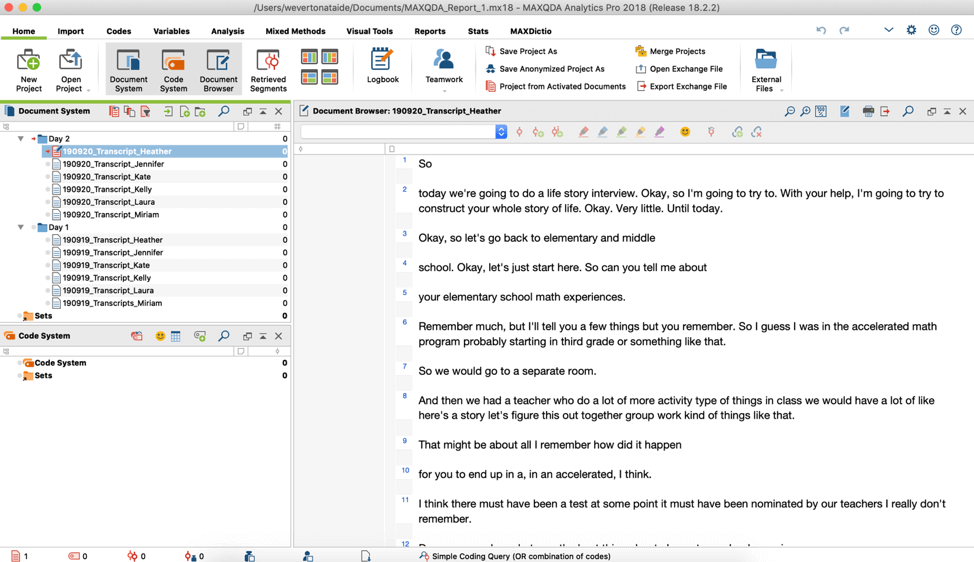
Organizing interview transcriptions with MAXQDA
Next, I imported the audio files and used MAXQDA’s Multimedia Browser to refine the automatically-created interview transcriptions (see screenshot below). Editing transcripts with MAXQDA is not only easy, but it was also very effective for the next steps of this research project: coding the transcripts.
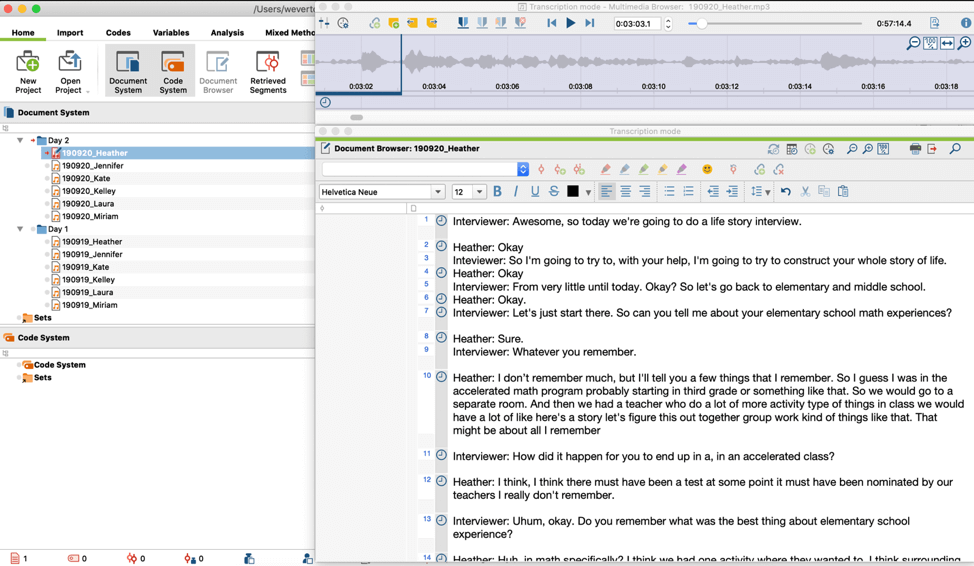
Revising transcriptions with MAXQDA’s Multimedia Browser
What was in the data?
The next step after preparing the transcriptions was deciding how to proceed with the coding. Once again, MAXQDA provided an excellent tool to visualize the things the participants talked about the most and things that they not only talked about but also shaped their experiences as women Ph.D. students in mathematics. I used MAXQDA’s Word Cloud feature to get a good idea of what topics might become codes later in the process.
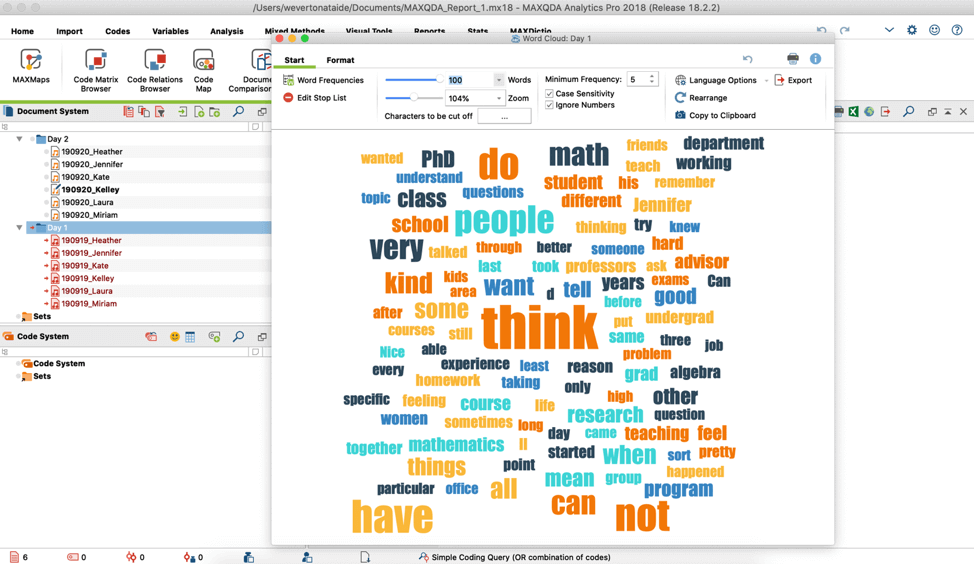
Word Cloud created from the first day of interviews
Since the interviews from day 1 and day 2 could inform different experiences these women are going/have gone through, I decided to generate separate Word Clouds for each day. A brief analysis of Day 1’s Word Cloud revealed that words of interest were ‘research’, ‘teaching’, ‘feeling’, ‘professors’, ‘department’, ‘algebra’, ‘women’, ‘homework’, and ‘different’.
From Day 2, words such as ‘gender’, ‘family’, ‘parents’, ‘society’, and ‘female’ looked like they might be words of interest for the next steps in my research.
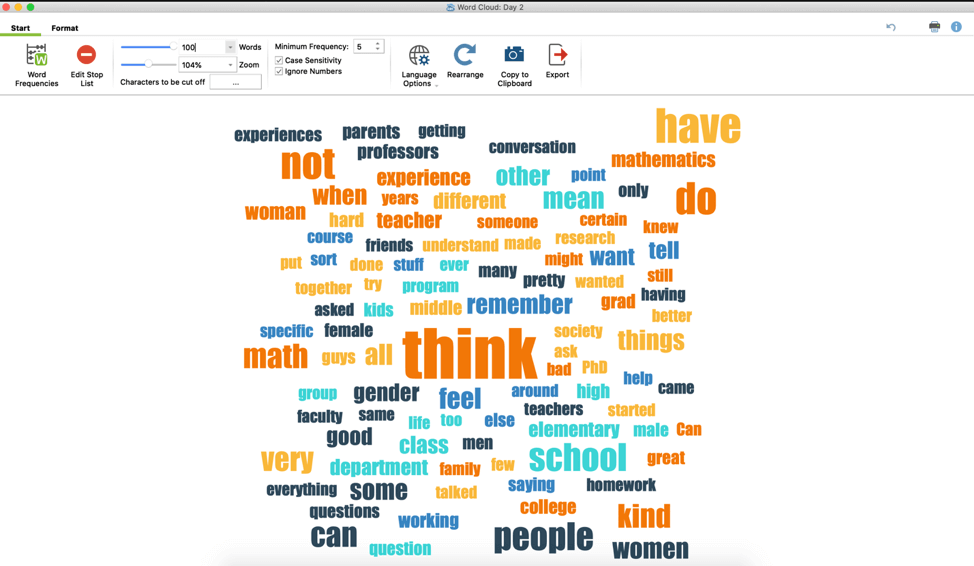
Word Cloud of the second day of interviews
Preliminary conclusions
From my preliminary data, I can, at the present moment, defer that the women who participated in my study are interested in both teaching and research. They have conquered their place in mathematics spaces and fought against inequalities that used to marginalize them in such spaces.
I have also noticed a passion for teaching. Two of the six participants are more inclined towards teaching/research for future jobs and three students are primarily focused on teaching. These women feel that they have been supported by their department and they do not feel alone since this department, in particular, has worked hard to support women in their program.

Women‘s conference poster in the math department
Big universities are now increasingly urging women to enter mathematical spaces. In this particular university where I conducted the interviews, the Association for Women in Mathematics had a huge impact on the way these women continue to experience and navigate their Ph.D. program in these male-dominated spaces (mathematical spaces).
However, the participants indicated that they still think it is very hard to consider the possibility of having a family and they often either said they would follow their husband rather than their dreams about becoming a teacher/researcher. Furthermore, one of the participants talked about the difference between the support men have in the department compared to the ones women have. She specifically talked about the ways boys are more privileged in having their advisors, usually, men, take them out for social events. She said women do not have these opportunities to have a beyond-department relationship with mathematics women professors.
What’s next?

Mathematics library
Stereotypes and biases towards women in mathematics still exist, and some women experienced discomfort by comments and questions posed outside department interactions, mostly at mathematics conferences.
Finally, but not least, it is important to see that even though these women are in the position of “de-privilege” in places where they are not well represented, they still learned how to navigate such spaces and achieve success. They have created agency in their lives and they have studied the ways they need to work to be able to ensure their agency. While life for them and these experiences might be very different (harder) from the one their male counterparts experience, they are still thriving in their programs.
The next step of my analysis is going to use MAXQDA to code all the 16-hours of interviews I have gathered. I will continue to develop my understandings around women’s studies to guarantee my positionality as a man does not impact the findings of this project. I then intend to write an article for the Gender and Education Journal reporting these women’s experiences and the need in the field to not only keep women in mathematics but also attract more women to the field.
About the Author
Weverton Ataide Pinheiro is a PhD student in Mathematics Education at Indiana University Bloomington, USA. His research project titled “The Empowerment of Women in Mathematics Graduate Schools” began in September 2019. Make sure to keep an eye out for updates from Weverton here in the MAXQDA Research Blog!
Meet the 2019 #ResearchforChange
Grant Recipients

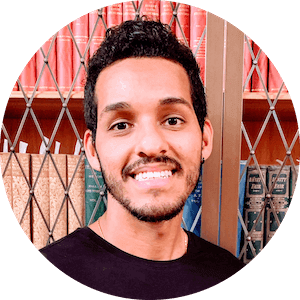 Weverton Ataide Pinheiro is a PhD student in Mathematics Education at Indiana University Bloomington, USA. His research project titled “The Empowerment of Women in Mathematics Graduate Schools” began in September 2019. Make sure to keep an eye out for updates from Weverton here in the MAXQDA Research Blog!
Weverton Ataide Pinheiro is a PhD student in Mathematics Education at Indiana University Bloomington, USA. His research project titled “The Empowerment of Women in Mathematics Graduate Schools” began in September 2019. Make sure to keep an eye out for updates from Weverton here in the MAXQDA Research Blog!